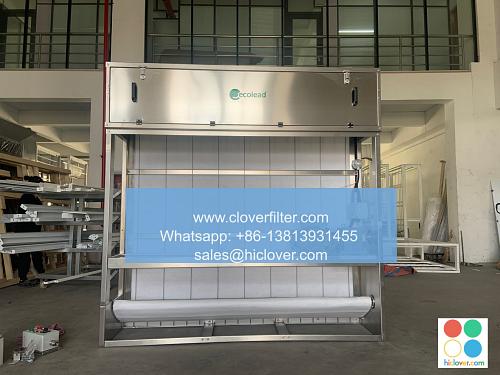Design and Optimization of Air Filters for HVAC Systems

Air filters play a crucial role in Heating, Ventilation, and Air Conditioning (HVAC) systems, as they help remove airborne pollutants, allergens, and particulate matter, ensuring indoor air quality and thermal comfort for building occupants. In this article, we will delve into the design and optimization of air filters for HVAC systems, highlighting various application areas, including commercial buildings, industrial facilities, and residential homes.
Importance of Air Filtration in HVAC Systems
Effective air filtration is essential for maintaining good indoor air quality and preventing the spread of airborne diseases. Air filters help remove particulate matter (PM), pollen, mold spores, and bacteria from the air, reducing the risk of respiratory problems and other health issues. Moreover, air filters can also help reduce energy consumption and operating costs by minimizing the load on HVAC systems and preventing the buildup of dirt and debris on critical components.
Design Considerations for Air Filters
When designing air filters for HVAC systems, several factors must be considered, including:
* Filter media: The type and quality of filter media used can significantly impact the filter’s performance and lifespan. Common filter media include fiberglass, polyester, and activated carbon.
* Filter size and configuration: The size and configuration of the filter must be optimized to ensure adequate airflow and pressure drop while minimizing energy consumption.
* Airflow rate: The airflow rate through the filter must be sufficient to meet the ventilation requirements of the building while preventing filter overload and pressure drop.
* Filter maintenance: The filter design must allow for easy filter replacement and cleaning to minimize downtime and operating costs.
Optimization Techniques for Air Filters
To optimize air filter performance, several techniques can be employed, including:
* Computational fluid dynamics (CFD): CFD simulations can be used to optimize filter design and airflow patterns while minimizing pressure drop and energy consumption.
* Experimental testing: Experimental testing can be used to validate filter performance and identify areas for improvement.
* Filter selection software: Filter selection software can be used to select the optimal filter for a given application based on factors such as airflow rate, filter size, and pressure drop.
Application Areas for Air Filters
Air filters have a wide range of applications, including:
* Commercial buildings: Air filters are used in commercial buildings, such as office buildings, shopping centers, and hotels, to maintain good indoor air quality and prevent the spread of airborne diseases.
* Industrial facilities: Air filters are used in industrial facilities, such as manufacturing plants and power plants, to remove hazardous particles and gases from the air.
* Residential homes: Air filters are used in residential homes to improve indoor air quality and prevent the spread of airborne diseases.
Conclusion
In conclusion, the design and optimization of air filters for HVAC systems is critical for maintaining good indoor air quality and thermal comfort while minimizing energy consumption and operating costs. By considering various design factors and employing optimization techniques, air filters can be optimized for a wide range of applications, including commercial buildings, industrial facilities, and residential homes. As the demand for energy-efficient and environmentally friendly HVAC systems continues to grow, the importance of air filter design and optimization will only continue to increase. You haven’t asked a question or provided any context. What would you like to talk about or ask? I’ll do my best to provide a helpful and direct response.

